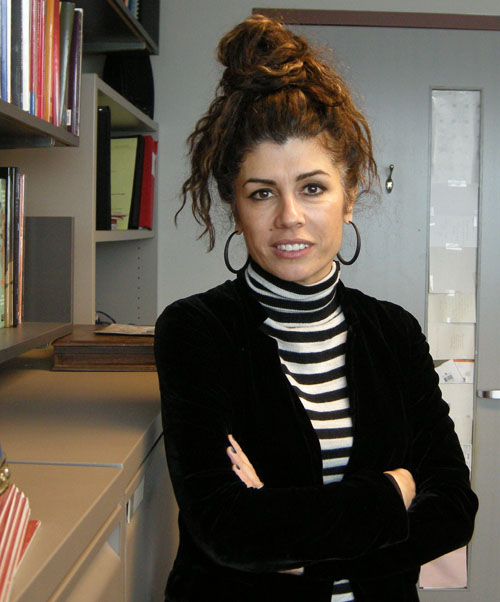
The University of Guelph’s small-town location and top-notch programs are two of the things that draw international students in, according to a recent study by psychology professor Saba Safdar.
“I thought I’d get a better taste of Canada if I went to the University of Guelph,” was one typical comment. Safdar says others mentioned reading about the university in Maclean’s magazine and being impressed by its high scores. “International students feel that if they are going to travel to another country to get their education, they want to be in one of the top programs,” she says.
Safdar’s study looked beyond U of G to explore the goals, needs and concerns of international students attending universities in France, Latvia, Estonia and Lithuania. “I wanted to get more detailed and in-depth responses than have been available previously through questionnaires. This was the first large qualitative study of international students.”
Students who had come from other countries to U of G often felt that if they attended school in a big city like Toronto, they would end up associating primarily with their segment of the city’s large immigrant community and wouldn’t learn much English or get the broader picture of Canadian life. Knowing someone who had previously attended the university and had a good experience was another major factor in choosing a school.
Overall, the international students at all universities had more positive than negative things to say about their experiences, but there were negatives. “Discrimination was a problem in some places,” says Safdar. Although open discrimination was rare in Canadian communities, a student in Lithuania described going to look for an apartment to rent and finding that the rent doubled once the landlord found out she was Russian, for example.
Another big challenge for many students was figuring out how the educational system worked in their new school. Many struggled to get information about seemingly simple things like how and when to drop a course, says Safdar.
Teaching styles puzzled them, too. “In Canada, students are expected to participate and speak up in class. Students ask questions and even challenge the professors if they don’t agree. That is simply not done in many places; the students are expected to sit quietly and take notes.”
The converse is also true, according to Safdar. “In the University of Bordeaux in France, classes are still taught in the traditional method where the professors read from their notes and the students write down what the professor says ─ ideally, word-for-word. German students coming to France to study absolutely hate this approach. So you see it both ways.”
Students who participated in the study mentioned many positive points about teaching styles in Canada, such as organized course outlines, no surprise tests or assignments (unlike China), good relationships between professors and students, having international advisors, requiring students to think and not just memorize, and emphasizing broader knowledge.
Loneliness was a struggle for many. “The average age of the students in our study was 19,” says Safdar. “That’s young. This was often their first time away from their families and their countries, and it was hard.” Because of their lack of language proficiency, many found it difficult to make friends, and those who did tended to buddy up with other international students, though not necessarily those from their own country.
That’s understandable, but Safdar says research suggests that students who don’t make friends with local students don’t do as well.
Other negatives related to the challenges of figuring out life in a new country; students struggled to open bank accounts, find grocery stores and pharmacies, and learn the rules that govern the new society they found themselves in.
“I think universities can learn from these comments,” says Safdar. “There are things that we can do to make life easier for new international students, such as providing them with information about how to do some of these basic things.” She emphasized the importance of working closely with U of G’s Office of Intercultural Affairs and Centre for International Programs. Such collaboration has valuable outcomes for students, researchers, and administrators.
Despite these challenges, the students interviewed were generally enthusiastic about the outcomes. “They described experiencing personal growth, having more confidence, being more mature, and feeling that they had learned to solve problems,” Safdar says. “They also talked about the importance of having a more global perspective and the experience of life in another country in terms of their future professional careers.”
Learning or improving a second language, especially if that language was English, was another often-mentioned benefit. For some, the opportunity to learn English and take courses in English was well worth any difficulties.
Safdar sees this research as a foundation, and would like to expand on it to better understand the needs of international students and how they can be helped. For example, she would like to compare the experiences and outcomes of students at larger and smaller institutions, and in large cities compared to smaller ones.
“I’d also like to do some longitudinal studies that would follow international students over a period of several years,” she adds. “I want to look at the ups and downs, successes and failures, and see how things change, or if there are common patterns.” This data would provide more guidance for universities and others working with students who have crossed borders to continue their education.